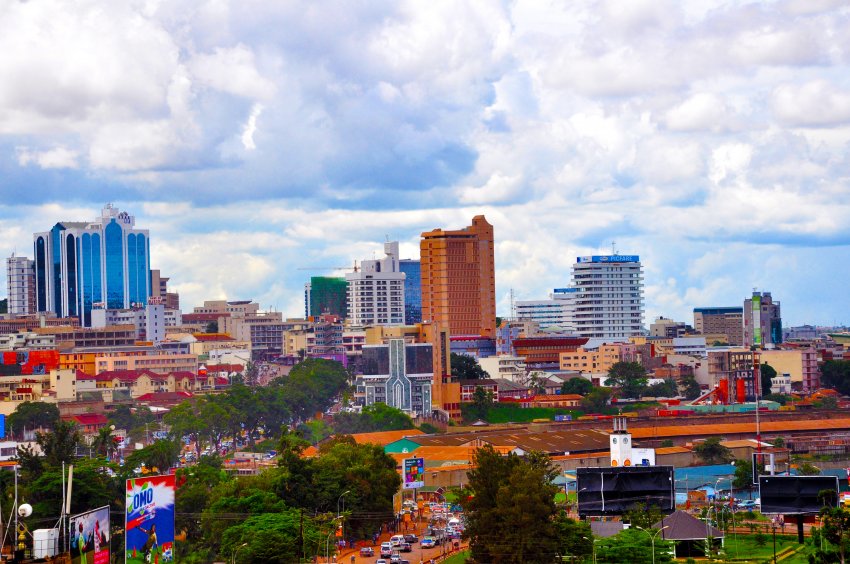KAMPALA, August 27, 2024 – The Ministry of Finance, Planning and Economic Development [MFPED] in partnership with the International Growth Centre [IGC] will host the 8th High-Level Economic Forum from August 29-30, 2024 at the Kampala Serena Hotel.
The Forum will be held under the theme, “Seizing opportunities for structural transformation to increase productivity and resilience”.
“The forum will examine how Uganda can seize opportunities for structural transformation to increase productivity and resilience amid uncertainties posed by reduced capital flows, rising global interest rates, global protectionism, and geopolitical tensions as well as long-term risks associated with climate change. The conference will address the growth strategies propelling Uganda to achieve inclusive and sustainable 10fold economic growth,” says a public notice for August 27, 2024.
According to the organisers, distinguished speakers will include prominent government officials, renowned local and international researchers, esteemed academics, private sector leaders, and key development partners.
Keynote speakers will include; Finance Minister Matia Kasaija, Finance Permanent Secretary and Secretary to the Treasury Ramathan Ggoobi, and IGC Country Director, Richard Newfarmer.
Domiciled in the United Kingdom, IGC works with policymakers in developing countries to promote inclusive and sustainable growth through pathbreaking research.
IGC Uganda delivers research and policy analysis and options in response to requests from the Government of Uganda. The organisation provides cutting-edge evidence to inform policy in areas such as regional trade and economic integration, firm capabilities, taxation and public expenditure, and labour markets and skills.
The Forum comes at the time when Uganda’s public debt has risen to unprecedented levels, reaching Shs 96.1 trillion or 52 percent of GDP as of June 2023, according to an Auditor General’s report released recently. Of this Shs 44.6trn is domestic while 52.8trn is from foreign sources.
Rising public debt coupled with growing debt servicing costs, stagnating domestic tax revenues, and declining export revenues are putting Uganda in debt distress and at greater risk of debt crisis.
Uganda faces a critical financial challenge as interest payments on loans now consume a significant portion of the budget and domestic revenues.
According to the December 2023 report from the Bank of Uganda [BoU], escalating debt servicing costs are straining tax revenue collection, with Shs 32 out of every Shs 100 collected going towards debt service. The BoU projects that external debt servicing will account for 35 percent of GDP in 2024/2025.
However, this is not unique to Uganda. According to a recent International Debt Report by the World Bank, “record debt levels coupled with high-interest rates have set many countries on a path to crisis”. The report further notes that “every quarter that interest rates stay high, results in developing countries becoming distressed – and facing the tough choice of servicing their debts or investing in public health, education or infrastructure”.
Multiple factors, such as a shift in spending toward infrastructure and the impact of the COVID-19 pandemic, explain the recent rise in Uganda’s public debt. Before the pandemic, public debt was 34.6 percent of GDP in 2018/2019 but surged to 50.6 percent in 2021/2022 and is projected to reach 53 percent in 2023/2024. This surpasses the IMF’s recommended threshold of 50 percent for low-income countries.
A drop in aid, budget support and development assistance from development partners due to passage of anti-gay law from 2.781trn to 28.94 billion has further contributed to increased borrowing to finance the gap. Acquisition of non-concessional loans to fund current expenditures, as well as new debt for Budget support coupled with growing gap between revenues and expenditures has always meant government has to borrow to finance the deficit. Rollover of previous debt and bond switches adds to the burden.
Other shocks, such as global fluctuations in interest and exchange rates, are also contributing to the rise in Uganda’s external debt due to foreign currency exposure. A depreciating domestic currency increases the value of foreign currency-denominated debt, exacerbating the external debt burden.
Rising public debt has led to growing public anxieties and sparked concerns about potential sovereign default and a debt crisis if the current trend is not promptly addressed.
High debt levels hamper economic growth and curtail public and private investment. They also divert crucial resources away from delivering social services, resulting in disproportionate spending on debt at the expense of vital sectors such as infrastructure, labor productivity, human capital, and public health. Sluggish tax revenue collection exposes Uganda to debt servicing vulnerabilities. Over the medium term, declining domestic revenues may push Uganda’s debt beyond the current level of 52 percent of GDP.
If Uganda’s current public debt trends are not controlled, debt financing turbulences could emerge in 2024. Growing evidence suggests that Uganda may become caught up in a “public debt safety trap” where a favorable debt position, largely based on traditional debt sustainability metrics, falsely signals that the country has more fiscal headroom to borrow, especially when debt is still below the set national or international limit.
Buy your copy of thecooperator magazine from one of our country-wide vending points or an e-copy on emag.thecooperator.new
